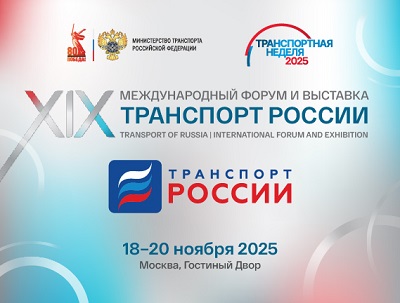Formation of performance indicators of railway transport for calculating labor productivity
https://doi.org/10.21780/2223-9731-2021-80-5-293-300
Abstract
Labor productivity in railway transport is determined using the “reduced performance” indicator, which is formed using a reduction factor designed to take into account the difference in unit costs of the payroll fund when performing a unit of work performance: ton-kilometers in freight traffic and passenger-kilometers in passenger traffic. The article reflects the results of a study to determine the value of the passenger turnover reduction factor in the formation of the total transportation performance of Russian Railways in modern conditions. The relevance of the revision of the current reduction factor is due to a change in the organizational structure as a result of the reform of railway transport, an increase in costs per unit of production by improving the quality of passenger traffic, strengthening security measures at stations and platforms, development of electronic passenger information systems, a significant increase in the volume of high-cost types of high-speed and high-speed passenger transportation.
A comparative analysis of the costs of the payroll fund in passenger and freight traffic in the context of tariff components is carried out. The comparison was carried out both in general and differentially for each type of activity carried out by the company in the passenger complex, namely: the provision of services for long-distance and suburban passenger transportation, long-distance passenger transportation and suburban traffic, carried out in high-speed rolling stock. The most costly items in each facility were identified, which characterize the labor intensity by type of activity of Russian Railways. For calculating the labor productivity of the company's employees, proposals have been developed for the formation of the reduced freight turnover using a single coefficient for passenger turnover, equal to 3.7.
About the Authors
O. F. MiroshnichenkoRussian Federation
Ol’ga F. Miroshnichenko, Dr. Sci. (Econ.), Professor, Chief Researcher, Scientific Center “Economics of Complex Projects and Tariff Setting”
Moscow, 129626
A. E. Oginskaya
Russian Federation
Anna E. Oginskaya, Cand. Sci. (Econ.), Head of the Laboratory, Scientific Center “Economics of Complex Projects and Tariff Setting”
Moscow, 129626
References
1. Danilov S. K., Belov I. V., Gibshman A. E., Galaburda V. G. Ekonomika transporta. Ucheb. dlya inzh.-ekon. spetsial'nostey vuzov zh.-d. transporta [Transport economics. Textbook for engineering and economic specialties of universities of railway transport]. 2-e izd., pererab. [2nd edition, revised]. Moscow, Transzheldorizdat Publ., 1957, 711 p.
2. Belen'kiy M. N. Ekonomika passazhirskikh perevozok [Economy of passenger transportation]. Moscow, Transport Publ., 1974, 271 p.
3. Dmitriev V. I., Kotov G. V., Kochkina L. I., Shafirkin B. I. Ekonomicheskiy spravochnik zheleznodorozhnika [Economic reference book of a railway worker]. Moscow, Transport Publ., 1978, 414 p.
4. Instructions for the statistical accounting of the transportation of freights, passengers and baggage on the railways of the USSR. Approved by First Deputy Minister of Railways of the USSR V. N. Ginko March 14, 1991 No. TsEU-TsChU-4845. ASPIZHT (retrieved on 01.07.2021) (in Russ.).
5. On the procedure for accounting for the above work when calculating labor productivity and cost of transportation. Order of the JSC “RZD” dated January 28, 2020 No. 156/r. ASPIZHT (retrieved on 01.07.2021) (in Russ.).
6. Long-term development program of the open joint-stock company Russian Railways until 2025. Approved by order of the Government of the Russian Federation dated March 19, 2019 No. 466-r. URL: http://government.ru/docs/36094 (retrieved on 01.07.2021) (in Russ.).
Review
For citations:
Miroshnichenko O.F., Oginskaya A.E. Formation of performance indicators of railway transport for calculating labor productivity. RUSSIAN RAILWAY SCIENCE JOURNAL. 2021;80(5):293-300. (In Russ.) https://doi.org/10.21780/2223-9731-2021-80-5-293-300
























































